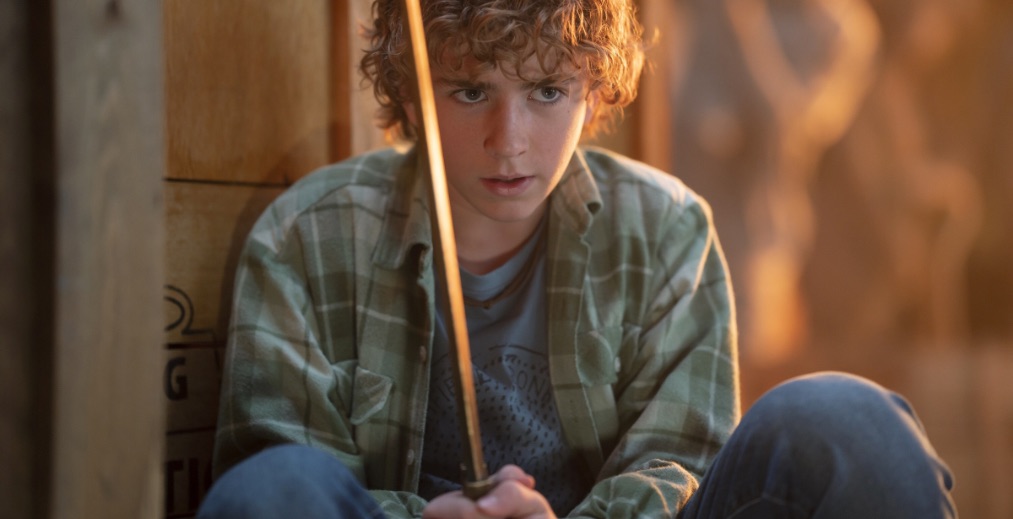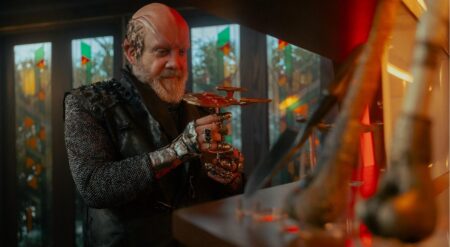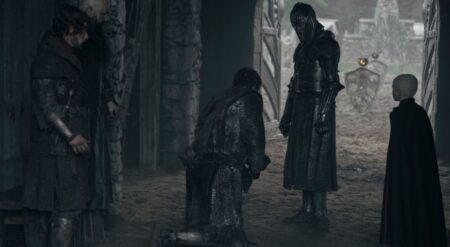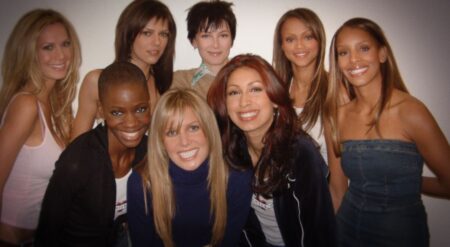As a book reader and an eager advocate for introducing others to the Percy Jackson universe, my excitement for the live-action adaptation of the series was palpable. With its promise of fun and dynamic characters, a modernized take on Greek Gods, and overarching themes of self-discovery and breaking generational trauma, Percy Jackson Season 1 was poised to captivate both long-time fans and newcomers alike. The prospect of a young cast taking the reins hinted at the potential for a long-running, fan-favorite series. However, despite the series having all the necessary ingredients for success, it falls short of achieving the greatness it aspires to.
Rooted in Rick Riordan’s The Lightning Thief, Percy Jackson Season 1 follows the journey of Percy Jackson (Walker Scobell), a 12-year-old demigod accused by Zeus of stealing his thunderbolt. This begins a hero’s quest as Percy journeys across the United States in pursuit of the stolen artifact and to rescue Percy’s mother from the clutches of the Underworld. Thankfully Percy is not alone as he is accompanied by fellow demigod Annabeth Chase (Leah Jeffries) and satyr protector Grover Underwood (Aryan Simhadri). Amidst encounters with monsters and gods, the series endeavors to explore themes of self-discovery and the burden of generational trauma, particularly as Percy grapples with his identity as a Forbidden Child—the offspring of one of the big three Gods: Zeus, Poseidon, and Hades.
The cast, a mix of established and rising talent, holds immense potential. Walker Scobell as Percy, Leah Jeffries as Annabeth, and Aryan Simhadri as Grover exhibit glimpses of brilliance. This is especially true when the narrative allows them to engage beyond mere exposition. Notably, Virginia Kull delivers standout performances as Sally Jackson, Percy’s mother, adding emotional depth to the story that extends past the novelization. Further, the series boasts a star-studded guest cast, including Jason Mantzoukas, Adam Copeland, Lin-Manuel Miranda, and the late Lance Reddick. Regrettably, their roles often reduce them to conduits for expositional dialogue rather than allowing their talents to shine.
The young actors shine in fleeting moments, and guest stars often hit more than miss. Jessica Parker Kennedy, as Medusa, provides a defining portrayal of what and who defines a monster is. Reddick embodies Zeus with the expected, imposing gravitas. Yet, even these stellar performances cannot compensate for the missed opportunities. There is an overwhelming sense that Percy Jackson Season 1 can be doing more with the tools given. The results end up being uninspired dialogue and a lack of character depth to keep viewers engaged.
While Percy Jackson Season 1 demonstrates potential in its opening and closing acts, the middle segment of the journey devolves into a narrative slog marked by lackluster dialogue and monotony. The show neglects to let the actors truly act, robbing scenes of the time needed to resonate. Even the fast-paced action sequences can’t make up for the lackadaisical setup it took to get there. The pacing is not the primary issue; rather, it’s the incessant reliance on exposition, with Percy functioning more as a plot device than an evolving character. This detracts from the series’ potential for nuanced storytelling and character development.

Unfortunately, this extends beyond just Percy Jackson’s story. Character arcs for Grover and Annabeth hinted at and seemingly foundational for future storylines, fall flat. While attempting to set the stage for subsequent narratives, the series fails to fully explore these arcs. This creates a disconnect between the viewers and the character’s journeys. This shortcoming is particularly striking, given the exceptional potential of the cast.
The issues in Percy Jackson Season 1 extend to its visual elements. The CGI is commendable at the series’ bookends, it falters in the middle. This reflects a broader inconsistency in the overall production. The series showcases the potential of Greek mythology in the modern world in its initial episodes but fails to sustain this momentum, relegating captivating moments to brief and uninspiring CGI snippets. The grandeur expected in the Underworld, and Olympus is just not there. Pivotal locations are mere backdrops to the next line of exposition instead of part of the narrative.
The divergence from the source material raises questions about author Rick Riordan’s involvement in the writing room. While attempting to integrate additional stories, the overcorrection of elements and deviations dilute the overarching themes. The series is caught between satisfying loyal book readers and captivating a new audience. Instead, the narrative fails to engage either. Percy Jackson Season 1 forgets about the story, more focused on the stories it hopes to tell in future seasons.
Despite promising moments, the series succumbs to the pitfalls of a lackluster middle segment—a crucial flaw in today’s media landscape where sustained engagement is paramount. The friends made along the way, a common trope in storytelling, lack the depth required to justify trudging through a mediocre middle part. The payoff, at best, is passable and, at worst, falls short of its considerable potential.
Unfortunately, the legacy of Percy Jackson Season 1 is unfulfilled potential. Despite its compelling source material, a talented cast, and the allure of Greek mythology, the series struggles to break free from the shackles of lackluster exposition-driven dialogue, inconsistent CGI, and a failure to realize its characters’ journeys. As fans yearn for a more immersive adaptation that does justice to Riordan’s beloved novels, the series serves as a reminder that, in modern television, the journey must be as compelling as the destination.
Percy Jackson and the Olympians Season 1 is streaming exclusively on Disney+.
Percy Jackson Season 1
-
Rating - 6/106/10
TL;DR
Unfortunately, the legacy of Percy Jackson Season 1 is unfulfilled potential. Despite its compelling source material, a talented cast, and the allure of Greek mythology, the series struggles to break free from the shackles of lackluster exposition-driven dialogue, inconsistent CGI, and a failure to realize its characters’ journeys.







